|
Lesbian Poet Herstory Page Manager:
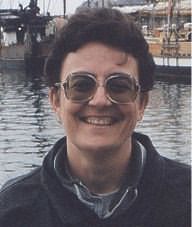
Trish Shields
bard@subee.com
Please contact Trish
with your questions or suggestions for
this section.

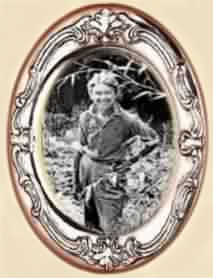
Elsa Gidlow

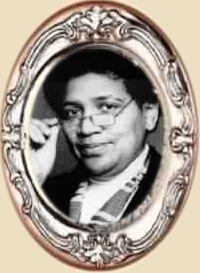
Audre Lorde

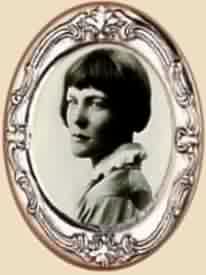
Hilda Doolittle

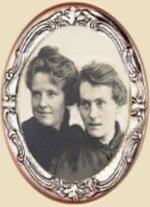
Michael Field
(Kathryn Bradley
and Edith Cooper) 
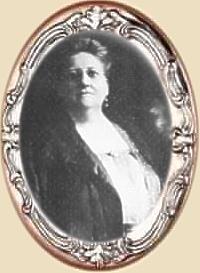
Amy Lowell

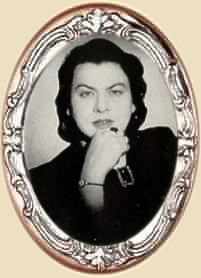
Muriel Rukeyser

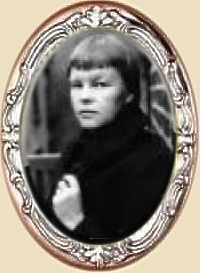
May Swenson

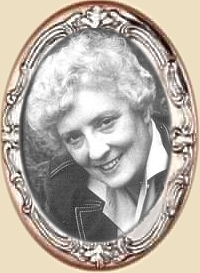
May Sarton

|
|
Under the able
direction of poet/novelist Trish Shields,
these pages of Just About Write will introduce Lesbian
poets from
the past, a little
about their herstories, and a sampling of their works.
These women were pioneers, and
they left a remarkable legacy for
us all. We urge you
to take the time to learn something about them
and their lasting
impressions of life, love, and the world around us.

Elizabeth Bishop
1911-1979
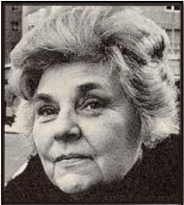
Elizabeth Bishop was born in Worcester, Massachusetts to a Canadian mother and an American father. Her father died from kidney disease before Elizabeth was a year old. Her mother's mental state deteriorated rapidly and was so precarious that she was institutionalized by the time Elizabeth was five years old.
Young Bishop spent some time with her maternal grandparents in Nova Scotia before moving to Boston and living with her paternal grandparents in Massachusetts. She was uprooted a number of times, living with relatives from both sides of the family until she was eight years old. This feeling of instability played a major part in her poetry.
She attended Vassar College in Boston in 1929 and founded the literary magazine, "Con Spirito," with college classmates Mary McCarthy, Muriel Rukeyser and Eleanor Clark. She graduated college in 1934, the same year that her mother died. A friend introduced Elizabeth to the poet Marianne Moore. Miss Moore was a strong influence on the young and immature woman and became her mentor. She was instrumental in redirecting Bishop from a career in medicine into a career as an author.
To further her career as a writer, Elizabeth moved to New York. Her early poetry uses surrealism and imagism, using a detached method of writing that minimized any reference to self. She had an eye for descriptive detail and soon her poetry became more personal and autobiographic. Her poetry has been compared to that of Emily Dickinson and Adrienne Rich. Marianne Moore published some of Elizabeth's poetry in an anthology released in 1936, entitled Trial Balances.
Her wanderlust took her to such places as Paris, London and Spain, though she finally settled in Key West for a time. Using Key West as a base, she traveled to Mexico and met Pablo Neruda and David Siqueiros. Elizabeth's rootless upbringing was considered by many to be responsible for her alcoholism and depression.
She moved to Brazil in 1942, and in 1951 met Lota de Macedo Soares, a self-taught architect and the love of her life. Elizabeth won the Houghton Mifflin Poetry Award in 1946 for her first book, North and South. Elizabeth was also a consultant in poetry to the Library of Congress in 1949.
She lived in Brazil for 16 years but felt homesick and took a job teaching in the United States. Her long-term relationship lasted until 1967 when Lota committed suicide. The book, Rare and Commonplace Flowers, by Carmen L. Oliveira and Neil K. Besner, published in 2002, chronicles Elizabeth and Lota's life together.
Her book, Poems: North and South: A Cold Spring, won her the Pulitzer Prize in 1955. Although not a prolific writer, she also won the National Book Award in 1969 for Questions of Travel and the National Book Critics Circle Award in 1976 for her book Geographic III.
She taught poetry at Harvard from 1970 to 1977, and at New York University and the Massachusetts Institute of Technology before her death in October 1979.
Learn even more about this remarkable woman's achievements at:
http://www.poetryconnection.net/poets/Elizabeth_Bishop#biography
and http://www.glbtq.com/literature/bishop_e.html.

Anaphora
(In memory of Marjorie Carr Stevens)
Each day with so much ceremony
begins, with birds, with bells,
with whistles from a factory;
such white-gold skies our eyes
first open on, such brilliant walls
that for a moment we wonder
"Where is the music coming from, the energy?
The day was meant for what ineffable creature
we must have missed?" Oh promptly he
appears and takes his earthly nature
instantly, instantly falls
victim of long intrigue,
assuming memory and mortal
mortal fatigue.
More slowly falling into sight
and showering into stippled faces,
darkening, condensing all his light;
in spite of all the dreaming
squandered upon him with that look,
suffers our uses and abuses,
sinks through the drift of bodies,
sinks through the drift of vlasses
to evening to the beggar in the park
who, weary, without lamp or book
prepares stupendous studies:
the fiery event
of every day in endless
endless assent.
— Elizabeth Bishop
In The Waiting Room
In Worcester, Massachusetts,
I went with Aunt Consuelo
to keep her dentist's appointment
and sat and waited for her
in the dentist's waiting room.
It was winter. It got dark
early. The waiting room
was full of grown-up people,
arctics and overcoats,
lamps and magazines.
My aunt was inside
what seemed like a long time
and while I waited and read
the National Geographic
(I could read) and carefully
studied the photographs:
the inside of a volcano,
black, and full of ashes;
then it was spilling over
in rivulets of fire.
Osa and Martin Johnson
dressed in riding breeches,
laced boots, and pith helmets.
A dead man slung on a pole
"Long Pig," the caption said.
Babies with pointed heads
wound round and round with string;
black, naked women with necks
wound round and round with wire
like the necks of light bulbs.
Their breasts were horrifying.
I read it right straight through.
I was too shy to stop.
And then I looked at the cover:
the yellow margins, the date.
Suddenly, from inside,
came an oh! of pain
—Aunt Consuelo's voice—
not very loud or long.
I wasn't at all surprised;
even then I knew she was
a foolish, timid woman.
I might have been embarrassed,
but wasn't. What took me
completely by surprise
was that it was me:
my voice, in my mouth.
Without thinking at all
I was my foolish aunt,
I—we—were falling, falling,
our eyes glued to the cover
of the National Geographic,
February, 1918.
I said to myself: three days
and you'll be seven years old.
I was saying it to stop
the sensation of falling off
the round, turning world.
into cold, blue-black space.
But I felt: you are an I,
you are an Elizabeth,
you are one of them.
Why should you be one, too?
I scarcely dared to look
to see what it was I was.
I gave a sidelong glance
—I couldn't look any higher—
at shadowy gray knees,
trousers and skirts and boots
and different pairs of hands
lying under the lamps.
I knew that nothing stranger
had ever happened, that nothing
stranger could ever happen.
Why should I be my aunt,
or me, or anyone?
What similarities
boots, hands, the family voice
I felt in my throat, or even
the National Geographic
and those awful hanging breasts
held us all together
or made us all just one?
How I didn't know any
word for it how "unlikely". . .
How had I come to be here,
like them, and overhear
a cry of pain that could have
got loud and worse but hadn't?
The waiting room was bright
and too hot. It was sliding
beneath a big black wave,
another, and another.
Then I was back in it.
The War was on. Outside,
in Worcester, Massachusetts,
were night and slush and cold,
and it was still the fifth
of February, 1918.
— Elizabeth Bishop
One Art
(This poem appears in the movie, In Her Shoes,
with Toni Collette and Cameron Diaz.)
The art of losing isn't hard to master;
so many things seem filled with the intent
to be lost that their loss is no disaster.
Lose something every day. Accept the fluster
of lost door keys, the hour badly spent.
The art of losing isn't hard to master.
Then practice losing farther, losing faster:
places, and names, and where it was you meant
to travel. None of these will bring disaster.
I lost my mother's watch. And look! my last, or
next-to-last, of three loved houses went.
The art of losing isn't hard to master.
I lost two cities, lovely ones. And, vaster,
some realms I owned, two rivers, a continent.
I miss them, but it wasn't a disaster.
--Even losing you (the joking voice, a gesture
I love) I shan't have lied. It's evident
the art of losing's not too hard to master
though it may look like (Write it!) like disaster.
— Elizabeth Bishop
Sonnet
Caught -- the bubble
in the spirit level,
a creature divided;
and the compass needle
wobbling and wavering,
undecided.
Freed -- the broken
thermometer's mercury
running away;
and the rainbow-bird
from the narrow bevel
of the empty mirror,
flying wherever
it feels like, gay!
— Elizabeth Bishop
|


